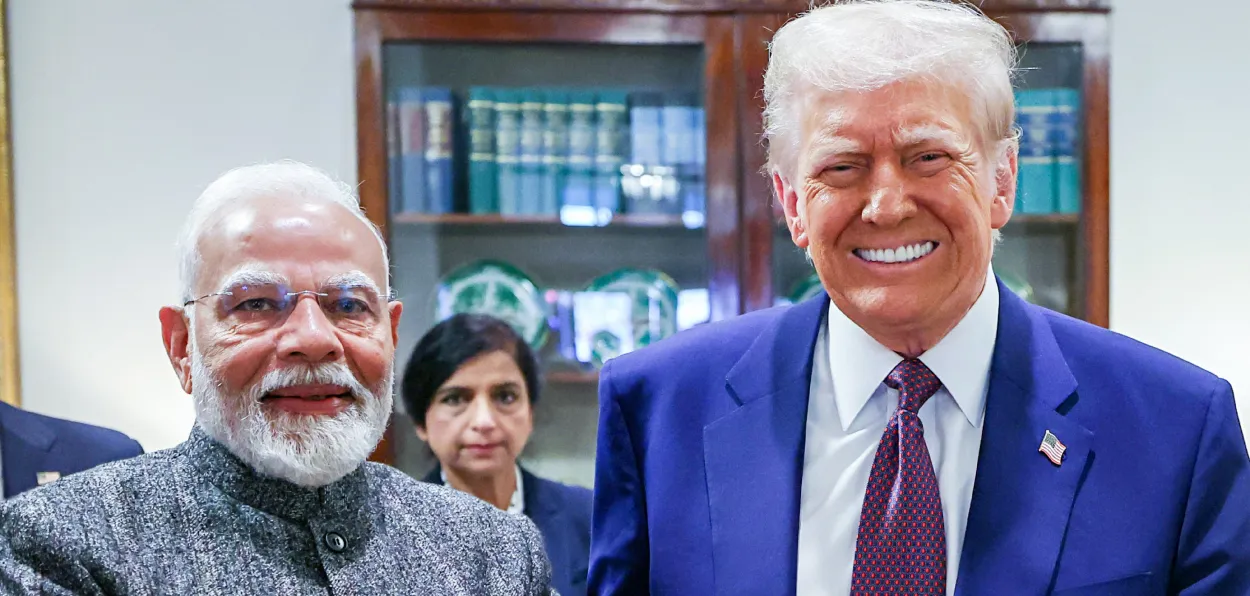
Ram Kumar Kaushik
In a 35-minute telephonic conversation with U.S. President Donald Trump, Prime Minister Narendra Modi dispelled all doubts regarding the US role in 'ending' Operation Sindoor.
Modi has cleared all speculations about the US mediation leading to the ceasefire between India and Pakistan.
The conversation, formally announced by Foreign Secretary Vikram Misri, brought long-awaited clarity after a swirl of speculative claims from Washington. This was not just a routine diplomatic update — it was a calibrated pushback.
Modi used this call to firmly underscore India's sovereign stand: no third-party mediation, now or ever. Misri emphasized that PM Modi briefed President Trump about Operation Sindoor — India’s decisive military response following the Pahalgam massacre — and asserted that India will now consider all acts of terrorism as acts of war, not proxy engagements.
Trump and his team had hinted that the ceasefire was a result of “active engagement” from Washington. However, PM Modi’s message was unambiguous: India neither sought nor accepted mediation — not when it was less prosperous, and certainly not now, when it is more confident and capable.
Prime Minister clarified that it was Pakistan that reached out to India via military channels for a ceasefire, and India, in good faith, agreed. There were no trade-offs, deals, or foreign brokering. Modi’s decision to relay this through a formal diplomatic channel, rather than social media, was deliberate — signaling India’s preference for statesmanship over spectacle.
While President Trump invited PM Modi for a meeting during his ongoing Canada visit for the G7 meet, scheduling constraints prevented it. Though both leaders agreed to meet soon. Yet, Modi’s refusal to engage immediately was interpreted by observers as symbolic — a subtle way of maintaining moral high ground while issuing a quiet fact-check.
Foreign Secretary Misri’s press statement reiterated India’s position in diplomatic terms, but the underlying message was sharper: India’s affairs — especially those related to security, sovereignty, and territorial integrity — are not open to negotiation or narration by others.
This clarity also has domestic implications. Modi’s calm but firm stance bolsters his image as a leader who does not buckle under global pressure and one who doesn’t allow foreign players to influence India’s narrative.
It’s also a study in contrast. While President Trump has been erratic on social media — tweeting impulsively about everyone from Elon Musk to Emmanuel Macron — Modi chose a restrained, statesmanlike posture. He didn't impulsively go to social media with rebuttals or personal attacks but made a dignified, documented correction through official diplomatic channels.
Most notably, the Indian side has refrained from triumphalism, even though the messaging was clear: India is neither a playground for geopolitical experiments nor a party to performative diplomacy.
ALSO READ: Arshel Akhter campaigns to make cycling a way of life for people of Guwahati
This development has set the record right. It’s about India asserting its matured global posture. A country that once hesitated to offend big powers is now comfortably calling out misstatements — even by the President of the United States — without drama.
Ram Kumar Kaushik is a Delhi-based senior journalist.
